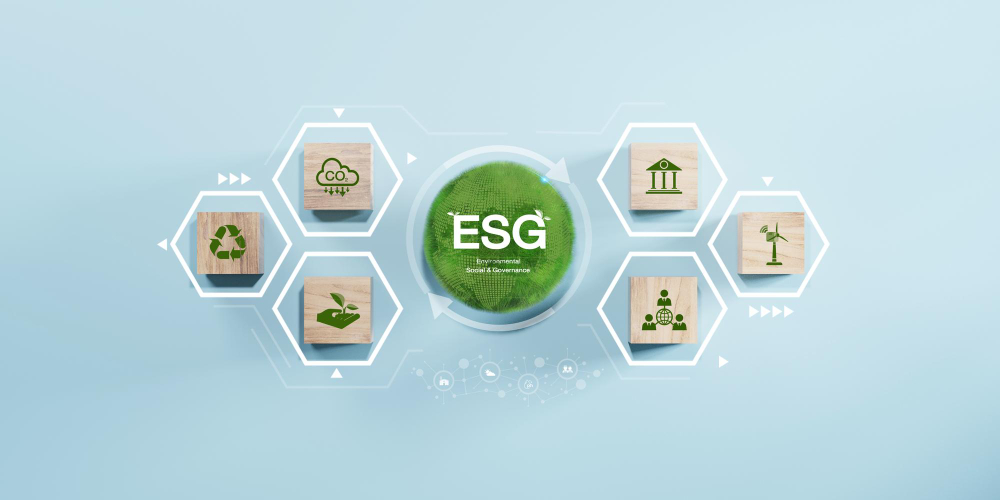Implementing ESG standards helps extend the spectrum of possible acquirers, including strategic acquisitions and institutional investors that are increasingly ESG-conscious. ESG-focused companies are sometimes viewed as better able to react to changing market conditions, resulting in a more appealing risk-return profile and it can be a real aspect for long-term value development and preservation, whether it’s enhanced brand loyalty, customer retention, or attraction to top talent.
Ultimately, companies with excellent ESG credentials frequently experience valuation increases after exit, commanding higher Enterprise Value/Earnings Before Interest, Taxes, Depreciation and Amortization (EV/EBITDA) multiples. This is because buyers regard these enterprises as lower-risk and more sustainable, resulting in a premium valuation.
ESG as a Catalyst for Value Creation
Private equity firms and venture capitalists are recognizing that companies with strong ESG credentials outperform their peers in terms of resilience, brand reputation, and long-term development potential. Multiple studies have demonstrated that firms with superior ESG indicators have higher exit multiples, particularly in industries where sustainability and social impact have a direct influence on customer and investor decisions.
Companies that understand how ESG initiatives and activities affect value can integrate ESG goals into company strategy to maximize value:
- To increase shareholder value, senior management might be incentivized through monetary or non-monetary awards linked to ESG actions. Higher customer satisfaction scores, higher employee retention rates, and faster productivity increases are examples of such metrics.
- Creating a cross-functional team with a diverse set of financial and operational experience. This will allow the organization to concentrate on the areas of the business where the advantages are most likely to be significant and easily quantifiable. While the strategy’s direction will be chosen at the top, contributions to this process should come from the ground up, from all around the firm.
- If ESG objectives are integrated into business strategy, financial planning, and performance management, the organization can create measurements to maximize the strategic and financial benefits of ESG investments.
- These KPIs would need to be established through strategic planning processes that are overseen by executive management and the board. ESG goals are being integrated into the operating model by building goods and processes that incorporate ESG objectives. Finally, the entire operating model may be created with ESG goals in mind, not at the expense of other commercial goals, but in tandem with them.

ESG: A Value Creation Strategy
Leading private equity companies are incorporating ESG issues into the investment lifecycle, from due diligence to value creation strategy. Rather than considering ESG as a compliance expense, they see it as a core strategy for increasing corporate value. Exit narratives increasingly emphasize ESG milestones, carbon footprints, DE&I measures, and governance improvements.
The importance of ESG considerations for firms, asset managers, and investors is highlighted by a noteworthy challenge: the lack of defined guidelines for assessing ESG performance. Companies frequently provide separate ESG and financial reports, reinforcing the idea of ESG as non-financial data and confounding the assessment of its impact on long-term value. Incorporating ESG into business valuation requires identifying relevant risks and opportunities related to the company’s business model using ESG ratings, reports, and analyst assessments. These insights are then quantified to ensure that valuation methodologies such as Discounted Cash Flow (DCF) or income approaches appropriately include ESG issues without duplicating data.
ESG as a Powerful Sell Point in Exit Strategies
One of the primary benefits of effective ESG practices is improved risk management. Teams that incorporate ESG criteria into their operations can proactively detect and manage possible hazards linked to environmental impact, social responsibility, and governance. This early detection aids in avoiding costly regulatory penalties, reputational damage, and business difficulties. For both investors and CFOs, effective ESG risk management translates into increased business stability and confidence, eventually protecting and increasing enterprise value.
NeoImpact’s ESG intelligence platform integrates both fundamental and alternative ESG metrics to proactively determine and eliminate ESG risks and improve brand reputation, increase brand value, and enhance investor confidence in brands, before investing. Our AI-enabled platform integrates capabilities to capture and analyze real-time alternative ESG metrics including regulatory landscape, news media monitoring, and innovation quotient. These capabilities improve overall ESG performance of portfolio firms and help investors detect early investment risks.
Sustainability is no longer a secondary factor; it is essential to company value. ESG performance is becoming a strategic differentiation, leading to higher exit prices and increasing a company’s long-term market relevance. As financial markets continue to value sustainable and ethical investing, ESG will remain a vital sale point in any exit strategy.
